Dr. Paul Hebert holds a Canada Research Chair in Molecular Biodiversity at the University of Guelph where he is the Director of its Centre for Biodiversity Genomics. For the past 20 years, his research has focused on the development of an innovative technique termed DNA barcoding which can almost instantly assign any organism to its proper species. The resulting biodiversity data represent a “global public library” which now contains information on more than 10 million specimens. By establishing the International Barcode of Life Consortium, he created a research alliance which is revolutionizing our understanding of planetary biodiversity. Dr. Hebert’s work is reinforcing our appreciation for the value of nature, aiding its protection, facilitating biodiversity monitoring, and providing everyone with easy access to biodiversity knowledge.
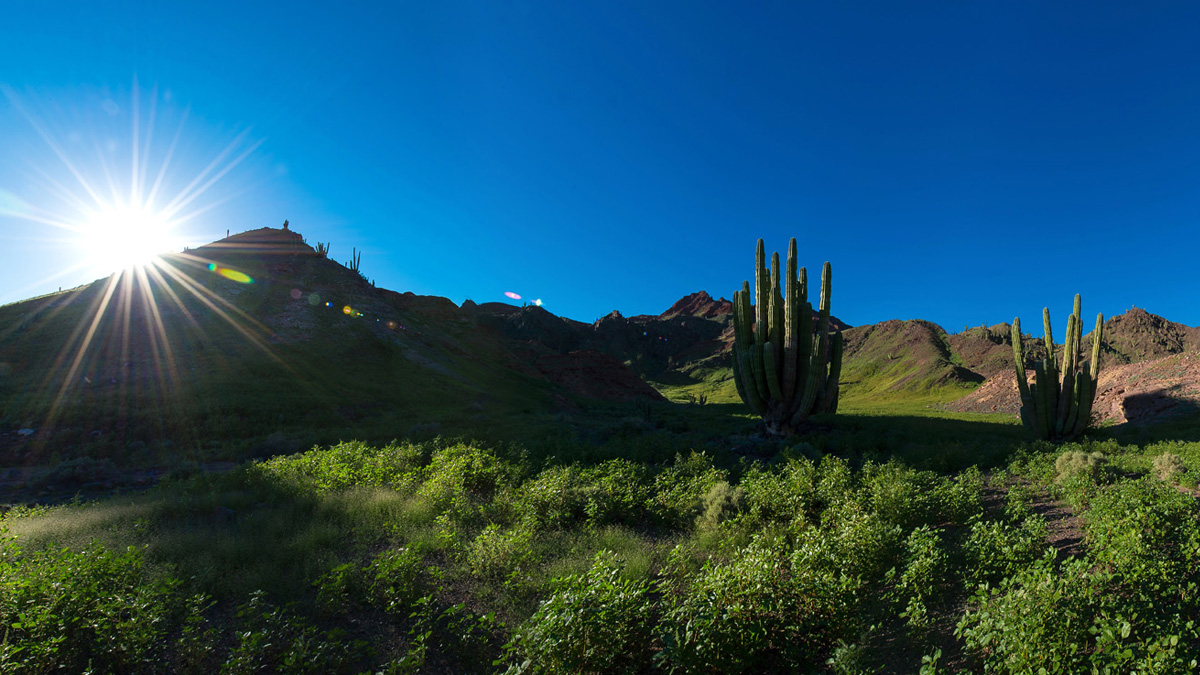
The Prize Winners
*Winner’s profile when a prize was won.
The Prize Winners 2020
Paul Hebert (Canada)
Professor, Department of Integrative Biology, University of Guelph
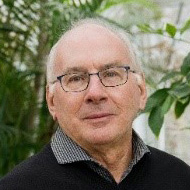
Melina Sakiyama (Brazil)
Co-founder, Global Youth Biodiversity Network
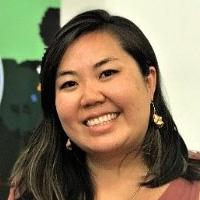
In the context of her participation in the 10th Conference of the Parties to the Convention on Biological Diversity in 2010, Ms. Melina Sakiyama met other young people who shared her vision. Together with Mr. Christian Schwarzer, she co-founded the Global Youth Biodiversity Network (GYBN), with the aim to create a global coalition of empowered youth and youth organizations to build a shared future in harmony with nature. As part of the team, Ms. Sakiyama led efforts to design capacity-building and youth empowerment programmes that supported hundreds of young leaders and youth-led biodiversity conservation initiatives, thus contributing to the implementation of the Aichi Biodiversity Targets and the objectives of the Convention. The Network comprises 551 youth groups, organizations and movements from 145 countries who participate and collaborate with each other on project implementation, policy-making and awareness-raising on biodiversity, and continues to expand across borders and issue areas.
Wirsiy Emmanuel Binyuy (Cameroon)
Founder, Cameroon Gender and Environment Watch (CAMGEW)
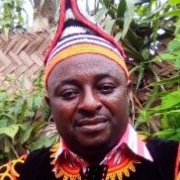
In 2007, Mr. Wirsiy founded the Cameroon Gender and Environment Watch, which focus on solutions to environmental and gender issues. The initiative works with the slogan “think globally, act locally”; it involves local communities in forest conservation and regeneration efforts to collect forest seeds and seedlings, develop tree nurseries, plant forest trees and do forest patrols. Mr. Wirsiy’s apiculture initiatives provided micro-financing opportunities for women, brought sustainable sources of income to communities and reduced bushfires drastically in the regions. He has been leading environmental educational campaign to raise the awareness of hundreds of thousands of forest people and has contributed largely in the regeneration of biodiversity hotspots. Mr. Wirsiy has empowered bee farmers and organized them to honey cooperatives to increase honey quality and quantity for a better market.
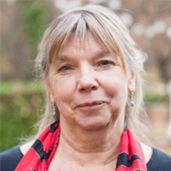
Kathy MacKinnon (U.K.)
Chair, IUCN World Commission on Protected Areas (WCPA)
Reason for award
After engaging in field research as a biologist in Indonesia for ten years, Dr. Kathy MacKinnon was appointed as the Lead Biodiversity Specialist of the World Bank. She contributed to numerous projects to strengthen biodiversity conservation and natural resource management in many developing countries in Africa, Asia and Central and South America. She has been cooperating with multiple stakeholders and focusing on mainstreaming of biodiversity in the development programs and securing local sustainable livelihood. Currently she is serving as the Chair of the IUCN World Commission on Protected Areas (WCPA) and she has been contributing greatly to the achievement of the Aichi Biodiversity Targets.
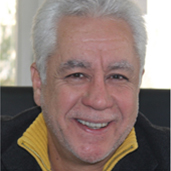
Assad Serhal (Lebanon)
Director General, Society for the Protection of Nature in Lebanon (SPNL)
Reason for award
During the civil war in Lebanon, Mr. Assad Serhal established the Society for the Protection of Nature in Lebanon (SPNL) to protect the natural heritage of Lebanon. Finding that Western models for nature conservation and management did not resonate with local communities in the Middle East, SPNL revitalized “Hima” (“protected area” in Arabic), the community-based traditional system for area-based conservation. Mr. Serhal has contributed to the establishment of 22 Himas covering terrestrial, wetland and marine ecosystems and successfully conserving wildlife habitat, pasture land and water resources. They have also empowered the communities and brought the communities a sustainable livelihood. This approach has been adopted elsewhere in the region.
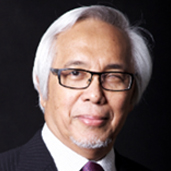
Abdul Hamid Zakri (Malaysia)
Former Science Advisor to the Prime Minister of Malaysia
Reason for award
Dr. Abdul Hamid Zakri has been contributing to the observation, analysis and evaluation of global biodiversity and ecosystem services in a career spanning more than four decades, promoting nature conservation and restoration, and contributing to the sustainability of the environment. As a co-chair of the UN Millennium Ecosystem Assessment (MA) and founding chair of the Intergovernmental Science-Policy Platform on Biodiversity and Ecosystem Service (IPBES), he played an important role in raising awareness of biodiversity among global leaders. He also contributed to the promotion of SATOYAMA initiative.
The Prize Winners 2016

Alfonso Aguirre-Muñoz (Mexico)
Executive Director, Grupo de Ecología y Conservación de Islas, A.C.
Reason for award
Dr. Aguirre-Muñoz has worked tirelessly in the Mexican islands—unique ecosystems and home to abundant endemic species—to remove invasive species and actively restore seabird populations and vegetation communities. Thanks to his interdisciplinary collaboration involving fishermen cooperatives, private donors, the Mexican Navy and federal government agencies, protected areas in excess of 40,000 ha stretching over vast island regions have been created. He has also made a significant contribution to Revillagigedo Archipelago’s (“Mexican Galapagos”) recent recognition by UNESCO as a World Heritage Site.
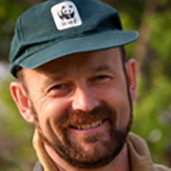
Yury Darman (Russia)
Director, Amur Branch, WWF Russia
Reason for award
Concerned about the impact on freshwater ecosystems of proposals for dams within the Russian Far Eastern Region, Dr. Darman organized five campaigns against their construction. He has extolled tremendous efforts to increase populations under the umbrella of iconic rare species, including the Amur tiger. Vast nature reserves extending beyond Russia’s border to China and Mongolia were established as areas of international cooperation based on an approach that integrates scientific and traditional knowledge. He addresses contemporary challenges through a focus on the nexus between biodiversity and climate change.
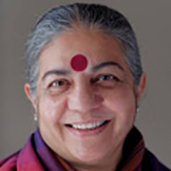
Vandana Shiva (India)
Founder and Director, Navdanya
Reason for award
Centered on the principle of ‘Earth Democracy,’ Dr. Shiva formed a grassroots movement “Navdanya” to save seeds, protect farmers’ rights and biodiversity, and promote traditional organic farming methods that raise levels of nutrition and income, thus reducing both hunger and poverty. In the context of the global discourse on biodiversity and biosafety, she has demonstrated unshakable resolve in speaking out for marginalized populations and women, and also achieved notable success in establishing sustainable societies based on models contributing to access and benefit-sharing of genetic resources.
The Prize Winners 2016
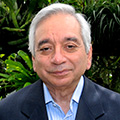
Kamal Bawa (India)
President, Ashoka Trust for Research in Ecology and the Environment (ATREE), India
Distinguished Professor, University of Massachusetts, Boston
Reason for award
Dr. Bawa has achieved notable results in research on tropical forests. Through developing new methods and genetic markers he has shown that forest fragmentation, widespread in the tropics, depletes biodiversity. He has led research on conservation biology for many years, including on the extraction of non-timber products and on mainstreaming biodiversity into agricultural landscapes. He established the Ashoka Trust for Research in Ecology and the Environment (ATREE) as a research institution for biodiversity conservation and sustainable development. He has displayed operational leadership and integrally promoted research, education and implementation at the ATREE.
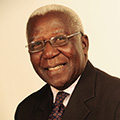
Alfred Oteng-Yeboah (Ghana)
Chair, Ghana National Biodiversity Committee
Reason for award
Dr. Oteng-Yeboah is a leader of biodiversity representing Africa. He has held several important positions at international institutions including Chair of the Subsidiary Body on Scientific, Technical and Technological Advice (SBSTTA). He has led international negotiations on biodiversity from a global perspective and had a worldwide impact. Especially, he has made significant contributions in the establishment and management of the Intergovernmental Science-Policy Platform on Biodiversity and Ecosystem Services (IPBES) through advocating the importance of dialogues between science and policy.
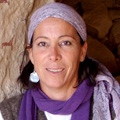
Bibiana Vilá (Argentina)
Director, Vicuñas, Camelids and Environment (VICAM)
Principal Researcher, National Research Council (CONICET) Argentina
Reason for award
Regarding the conservation of wild vicuñas in the Andean altiplano, Dr. Vilá has led the implementation of conservation measures integrating both traditional knowledge of indigenous communities and modern science including ecology, ethology and animal welfare. Also, she has made significant contributions by integrally promoting support to local communities and the implementation of environmental education. This has been achieved through the sustainable use of economically high-value vicuña fiber, realizing both the conservation of wild animals and the stable development of regional communities, and through leading a local-based and globally important project.
The Prize Winners 2016
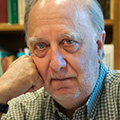
Juan Carlos Castilla (Chile)
Professor, Marine Ecology, Department of Ecology, Pontificia Universidad Catolica de Chile
Reason for award
As “the pioneer of South American marine ecology,” Dr. Castilla has been involved in national strategies promoting the conservation and sustainable use of biodiversity. He worked with governments, coastal and more marginalized artisanal fisher communities, and proved that the small scale Marine Protected Area is effective for sustainably developing the community as well as growing a green economy.
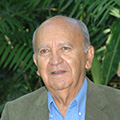
Rodrigo Gámez-Lobo (Costa Rica)
President, Instituto Nacional de Biodiversidad (INBio)
Reason for award
Dr. Gámez founded and initiated the INBio in Costa Rica, a country of mega-diversity. He provided a successful model for the conservation and sustainable use of biodiversity to the world in various fields including the inventorying of biodiversity, environmental education, bioprospecting, policy and legislation, land use management/technical assistance, capacity building and eco tourism.
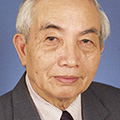
Vo Quy (Viet Nam)
Honorary President, Center for Natural Resources Management and Environmental Studies (CRES), Vietnam National University, Hanoi
Reason for award
Dr. Quy, who took the initiative to involve rural communities as the main proponents of the country’s nature conservation and reforestation program, is rightly called the father of Vietnam’s environmental conservation movement. He showed a model of the conservation and rehabilitation of nature, offering hope that lands devastated by urbanization or warfare can be regenerated.
The Prize Winners 2010

Jean Lemire (Canada)
Biologist, Explorer, Filmmaker
Reason for award
Mr. Jean Lemire (b. 1962) has been contributing to raising awareness and supporting child and youth education in recognizing the importance of biodiversity and becoming involved in action to preserve life on Earth by taking advantage of his unique background as both a biologist and filmmaker.
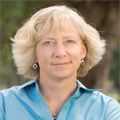
Gretchen C. Daily (United States of America)
Professor, Stanford University
Reason for award
Dr. Salim (b. 1930) has been taking a leadership role not only in Indonesian environmental policy formation and its implementation and the promotion of activities for environmental NGOs but also in international conferences on the simultaneous pursuit of environmental conservation and economic development.
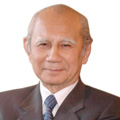
Emil Salim (Indonesia)
Chairman of the Advisory Council to the President of Indonesia
Former Minister of State for Population and the Environment
Reason for award
Dr. Daily (b. 1964) is a scholarly researcher in the Department of Biological Sciences at Stanford University. She has discovered the economic costs of environmental destructions, caused by human societies and their economic activities, and has contributed to the preservation of the ecosystem utilizing the concept of “ecosystem services.”
Special Prize for the International Year of Biodiversity 2010
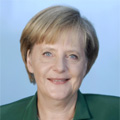
Angela Merkel (Germany)
Chancellor of Germany
Reason for award
Angela Merkel (b. 1954) has demonstrated strong leadership of global environmental issues including climate change and biodiversity conservation policy at national, EU and international levels as the Chancellor of Germany.
